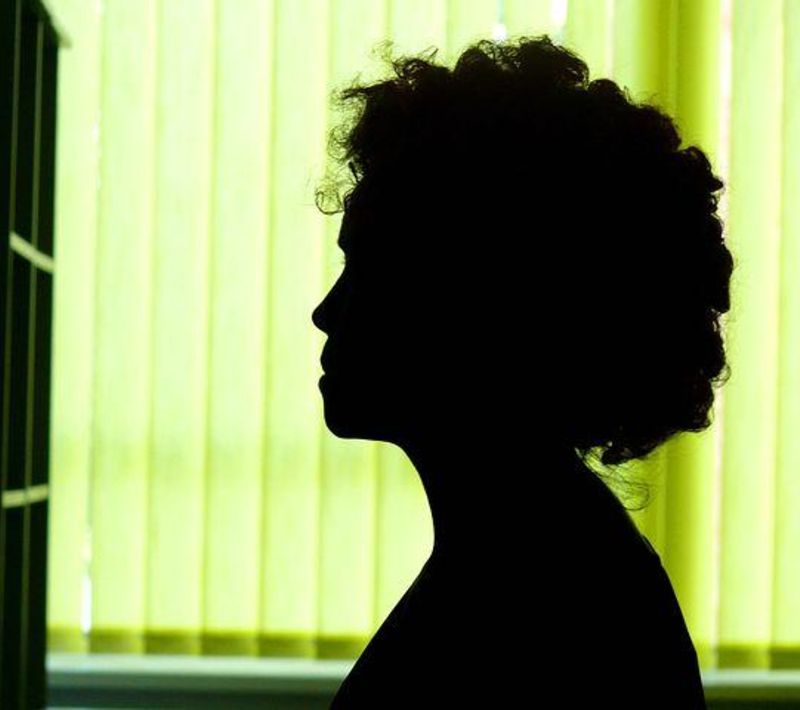At Twenty

Her parents were already frustrated with her situation, but in fairness to her, she was not trying any less than her best. When the temptation came to be angry at how her situation at home had turned out, she consciously tried to pull herself together and put herself in her parents’ shoes. “If I had a child-like me, what would my reaction truly be?”
Although she never truly arrived at a definite answer, (because it is easier to deal with a hypothesis than the reality) she did not think she would be jumping around for joy. She had enrolled for the Joint Admissions Matriculation Board Exam (JAMB) since she finished secondary school at the age of fifteen. She had got less than the cut-off mark to be admitted into any federal or state university each of the five times she sat for the exams.
After her fifth attempt, her father vowed not to enroll her again. “What is the point of waiting to get disappointed?” he wondered. Her mother was visibly frustrated and had even gone as far as making the suggestion to take her for an exorcism session. If not the infestation of evil spirits, what else could a person attribute the situation of an ace student suddenly becoming such a blockhead? Nobody took her seriously anymore. All the friends she had made along her way had cut off ties with her. Worst of all was the fact that both her younger siblings had gone ahead and gained admission into the same university. She could not blame anybody too much though. To whom much is given, much is expected.
It was her immediate younger brother who first gained admission into the university. When he did, she had approached her father and begged him that since she could gain admission into a polytechnic with her grades, she would really love to explore that option. Shame had already engulfed her and she did not know what else to do.
She was tired of staying at home and being the never-ending subject of the neighborhood gossip and sneers. Her father looked at her disgustedly and asked if he looked like somebody who was ready to sponsor a polytechnic brain. If she had given up on university, then she had just two options: either learn a trade or get married. In her family, University was the ultimate prestige. Both her parents were university graduates. Her father was not even prepared to listen to the fact that she planned to channel university from the polytechnic.
That night, as she lay in bed, she laughed herself to scorn. She could not believe what was happening to her. It seemed some hideous thing beyond her imagination was swallowing her dreams one after the other. It was eating her up badly, how none of the doors she had fancied at one point or the other were opening. Her plans were crashing on her vision. It was becoming increasingly difficult to look ahead. So while she struggled to contain the bitter laughter that erupted in the pit of her belly so as not to wake the entire household, she accessed herself once more and for the umpteenth time broke down in tears.
The next year, she took JAMB again with her youngest sibling. Éfé gained admission, but she remained at home. For the second time, she watched in dismay at all the pomp and pageantry with which her younger brother was being sent forth to the land of higher learning while she was billed to mark time waiting for whoever was in charge of lightning in the sky above her to remember his or her role and crack the sky on her behalf. She had long stopped praying and believing in miracles.
She could no longer figure out why she even believed in God in the first place: for herself that is. She had grown up in a home where He was a constant. Looking at herself in retrospect, a moment of disbelief was a possibility she had never once envisaged. Her future just seemed very opaque. Still, she struggled to deliberately be passionate about life while holding on to her sanity by a thread. She still went to bed at night and dreamt freely. It was her life anyway. She owed herself that much.
Her younger brother Ésè, did not enjoy as much glamour as Éfé did when he was sent to the university. The reason was that he had not been admitted to read his first choice. It was not like that was his fault though. So, while their parents were glad that at least one of their children had finally made it into the university, it was with the repressed joy of “half a loaf is better than none.” It was the reason she wished that for a moment, her father would reason with her and consider the fact that even a morsel can be very satisfying in the face of raging hunger. But she only had two options open to her. She also had the option of choosing or refusing to.
So, when Éfé was on the verge of leaving and she had failed again, she decided to try her luck one more time while her father was still high on the joy of the child that had made him the proudest. He was sipping his beer and reading a newspaper that evening when she summoned all the courage she could and approached him.
She greeted, sat beside him, and began. “Daddy, I’m really sorry I failed again. I’m really trying…”
“Èjiro, I am already sick and tired of hearing your endless sorries. Hope you’ve not come here to beg me to enroll you for JAMB again oh? Because each time you fail, you say sorry, yet remain recalcitrant. Are you really not ashamed of yourself? Now you are no longer even being compared with your peers, but your younger ones. Those who you should be showing good examples to. Ha! It’s such a shame,” he waved his hand to signify his disinterest in whatever she was up for talking about.
She swallowed hard as the words he spued pelted her. She had heard these words over and again in different versions and each time, she wished she could say she had grown used to them. But there was no getting used to being broken over and again in quick succession. When she opened her mouth again, she immediately closed it to re-energize her voice. If she was taking the chance, she wanted to do it right, leaving no regrets whatsoever in the end. She took a deep breath then began.
 Image Source: pixabay.com
Image Source: pixabay.com
“I don’t have any excuses left. Still, I’m really sorry I have not been able to make you happy for a while now, so I want to ask for one last chance…”
“One last what?” he cut in sharply. “No way! You had better just forget it.”
Whatever made her think she could have the conversation confident and dry-eyed? Her eyes began to mist and the strength of her voice gave way. She sniffed, then continued softly. “Daddy, could you just hear me out please?”
The man pouted, crossed his hand above his beer belly, and replied, “Mmm! I’m listening.”
“Could you please enroll me in a computer school?”
“Ehn?”
“I’m sorry,” she sobbed, “b…but the…there is…none of the trades you suggest I learn catches my interest.” By that moment, the tears had completely overpowered her.
After what seemed like a bit of contemplation, her father replied with a pout still pulling at his lips, “Why are you crying now?” But she wasn’t sure how to reply. Her body just quaked to the distorted pattern of her sobs. When after a while she did not reply, her father continued, “There is no need for that. Wipe your eyes and go and wash your face. I’ll think about it.”
But she did not budge. She was even surprised at herself. After watching her for quite a while, her father slowly reached for her shoulder, patted it, and said, “That’s enough now, Èjiro. Stop crying already. It’s okay.”
A few months after Éfé left home, her father enrolled Èjiro in a computer school a little distance away from their home. She was excited about her new environment and determined to do her best. She began catching up very fast and because of her excited chatter about her experiences each time she returned home, her father bought her a new computer and her joy knew no bounds. She worked tirelessly on the computer system till her fingers and eyes ached.
Then, one of those days, she fell somewhat ill, so she remained at home to convalesce. That day, her mother’s elder sister, Aunty Bimpé came visiting. While she was in the kitchen preparing to entertain her mother’s guest, in accordance with her mother’s instructions, she inadvertently overheard the women’s conversation. Her aunt told her mother that her father was having an affair with her best friend.
She had seen both of them with her own two eyes, so it was reliable information. At the news, she froze in the kitchen. She was quite certain that Aunty Bimpé did not have her facts correctly. Or maybe she had heard something wrong. Maybe her father was not the one in the story. She could practically boast that her father was not the cheating type.
But her mother neither seemed to flinch nor sound perturbed. Then she heard her aunt lift her voice in, “What?! You knew?” When she approached the sitting room carrying the tray of food to the women, she caught a glimpse of Aunty Bimpé’s hands dropping from her head. Èjiro was not sure how to feel. She was not the subject’s wife. Still, there was a deep cut in her heart. For some reason, she felt betrayed.
She wondered how all hell had not been let loose in the house based on her aunt’s allegation and her mother’s apparent confirmation. She was the first child of her parents, so she had an idea of how far back her mother and that best friend of hers went. How bizarre was it, for her mother to have to share her man at all, let alone with a person who was supposed to protect him on her behalf?
A while after Aunty Bimpé’s visit, Ésè also visited home. It was a weekend and a few days to his final exams. As usual, everybody was happy to see him. There was a lot of laughter in the house and it was a memorable time together. He got a lot of cash gifts from their parents as a means of supporting his final year expenses including extracurricular ones. The next Monday, their father drove him to the bus stop so as to board a vehicle back to campus. They bade each other farewell and parted ways. Ésè promised to call home by the time he arrived at school.
 Image Source: unsplash.com
Image Source: unsplash.com
Sometime around late afternoon, Mr. Umukoro rushed home. Apparently, he had gotten a call from Éfé notifying him of his son’s death. The siblings shared a room where they lodged somewhere off-campus. Since he, unlike his brother, had not gone home that weekend, he had left for classes before his brother returned to campus that Monday morning. When he got back to the room sometime around early afternoon when his classes had ended, he met the door unlocked. By the time he went in, he found his brother lying face down, stone dead in the pool of his own blood. His body was riddled with several stab wounds.
What Èjiro would remember the most about the condolence visits paid to them after her younger brother’s death was her mother’s best friend. She came with her bulging belly and even shed tears. When she went to her mother and held her, she did not resist. She just cried uncontrollably. Èjiro was so appalled that she had to step out of the sitting room that day. Whatever it was that made her mother accommodate such a situation, she did not know and she was not curious.
At twenty-four, Èjiro sits on a desk and types for most of the day. She feels terrible pains somewhere at the base of her spine and experiences difficulty walking. A few days ago, she was watching a preacher on television who was teaching about how people ought to plan their lives. She could not help but look at him with disgust and at a point, switch off the television when she couldn’t take it anymore. What was there to plan in a life that held no guarantees?
Her parents had planned that after secondary school, she would be admitted into the university. Her parents had planned that in a few days, their son would be a graduate and they would finally dance for joy just looking at the result of their years of labor. The days following Ésè’s death had stolen most of her father’s words and practically all her mother’s joy. Her mother had probably planned that in her old age, she would live happily with her husband.
Every now and then when her well-heeled children would visit, they would gather around her table and she would have little or no cares or worries. Little did she know that her witch of a best friend was the arch-enemy of her joy. She stole it. She is sitting comfortably on the work of another woman’s lifetime with a son that she regrets she cannot escape calling her half brother.
Now, her mother hangs onto life by a thread and lives with the struggling her in a studio apartment somewhere in the suburbs. She had barely recovered from a bout of stroke when she suffered another one. Some days, she looks at her mother and manages to stifle her tears. On others, she has to rush out of the house and release her pain properly. There’s no way to compare her mother in her glory days to her now.
At twenty, she was still eager to live life even when it was the least appealing. There were still things that tickled her fancy and fantasy. Then the current beneath the bridge became ravenous and at twenty-four, she has lost most of her faith and some days even asks her mother if she would have preferred to lose her instead of her son. Then the old woman manages a lopsided smile and a lopsided “no”. Her eyes say she is telling the truth. Those eyes have a way of settling the turbulence within her soul. At twenty-four, her mother is her beginning, her ending, her everything. She tries to imagine a life without her, but she just can’t.
As she walks towards the junction to board a bus back to where she came from in the morning, she thinks of her father and how little they now say to each other. Sometimes, she wonders if he feels sorry at all. She struggles to be as rational as she can and the truth is that she has mixed feelings towards him; a broth made up of gratitude and more of resentment. Gratitude because it is the rope that he came to her rescue with that sustains her still. Resentment on her mother’s behalf especially. But as much as she can, she tries not to show it. Although, she is still coming to terms with why not letting your feelings show is termed maturity.
Every shard of her rests heavily on Afrocentrism which she strives to depict vividly in stories drawn from the ecstatic heritage of the African spirit. She delivers these little draughts of bliss to keep the toes on their tips and imprint deeply. She steers the eyes towards the speck in the seemingly unsullied.

